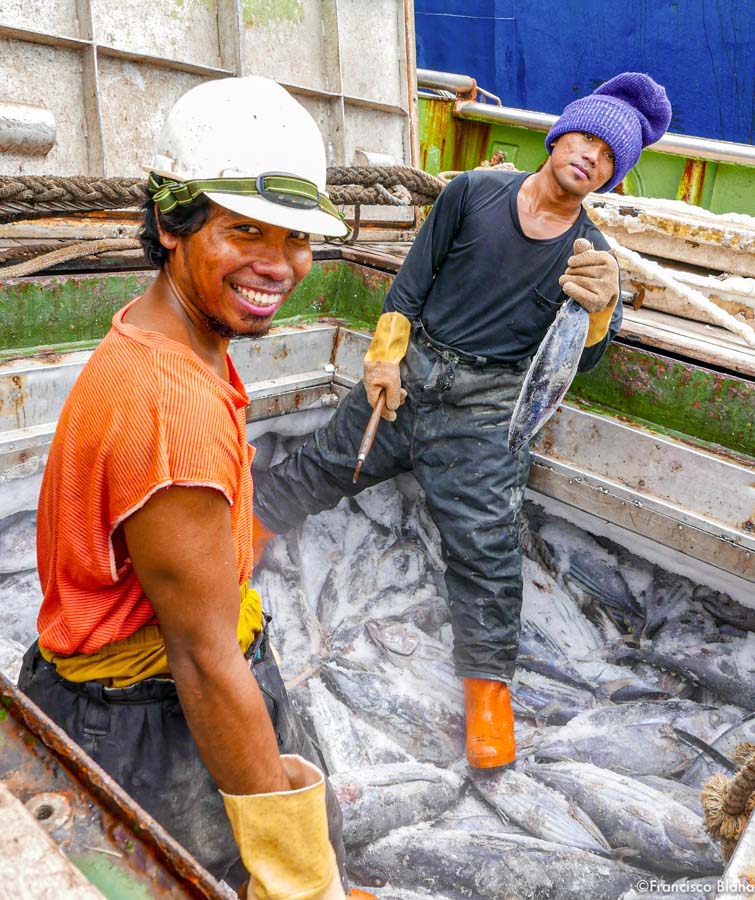Recent deaths on tuna-fishing vessels operating in the Western and Central Pacific Ocean (WCPO) have again signalled the need to improve safety and working conditions on vessels, and to introduce and enforce meaningful penalties for vessel owners that flout regulations.
FFA’s Trade and Industry News for May and June 2020 reported on the death of a Kiribati observer from “unnatural” injuries in March 2020. It also reported on the deaths of four Indonesian crew on a Chinese vessel in the WCPO. They died in 2019, but their deaths did not come to light until April 2020.
Existing rules have been criticised for not going far enough to protect observers or crew, Trade and Industry News reported.
It said that at least one well-known voice in the region, Bubba Cook, of WWF-New Zealand, had called for a new approach to keep observers safe, since current rules and penalties were failing observers. Mr Cook said that using more electronic surveillance technology on ships might help. So might banning a ship from ever fishing in WCPO waters if an observer disappeared or died in suspicious circumstances.
Trade and Industry News said that “the death of an observer must be reported immediately and can shine a spotlight on the situation, some incidents relating to crew death or welfare can go unnoticed for months or even years”.

In 2016, FFA adopted harmonised minimum terms and conditions for access by fishing vessels (HMTCs). They are used to regulate fishing in the waters of the 17 countries that are members of FFA. The HMTCs make getting and keeping a licence to fish for tuna contingent on maintaining a safe work environment for observers. They give instructions on how to do this, and on what to do if an observer is assaulted, harassed, dies, goes missing, or is believed to have fallen overboard.
The HMTCs were updated in 2019 to state that the operator of the fishing vessel was also responsible for the health, welfare and safety of the crew while they are on board, and for the duration of their contract. Crew members must also be given a contract they understand (for example, in their own language).
The Western and Central Pacific Fisheries Commission (WCPFC) introduced a rule in 2017 that requires vessel operators and captains to immediately undertake the emergency action specified if an “observer dies, is missing or presumed fallen overboard” or “suffers from a serious illness or injury that threatens his or her health or safety”. It builds on older rules on how to help observers do their job properly.
Trade and Industry News said the Indonesian Government tabled its concerns about “labour abuse” in a paper to the 16th annual meeting of the WCPFC in December 2019.
Under WCPFC resolution 2018-01, the countries of the region, and other countries that fish in the region are expected to enact laws that require fishing operators to provide crews of fishing vessels with fair working conditions, fair pay, and a safe environment to work in.
The rules of both organisations reiterate the United Nations Convention on the Law of the Sea (UNCLOS).

Electronic monitoring may help improve working conditions
Trade and Industry News said the use of electronic monitoring and surveillance technology and artificial intelligence may make working conditions safer for observers and crew.
It reported increased interest in electronic compliance and observance as a result of suspending the observer program as part of COVID-19 restrictions. Observers are a lynchpin in keeping reporting of fishing effort accurate, and in the prevention of bycatch and illegal, unreported and unregulated (IUU) fishing.
The countries in the region have been working out how to make electronic monitoring feasible, especially for the small island developing states (SIDS). It is expensive, and much of it is not fully developed yet, Trade and Industry News reports.
The FFA newsletter also reported that Thai Union was looking at using artificial intelligence to detect IUU fishing and abuses of human rights on tuna fishing vessels.







